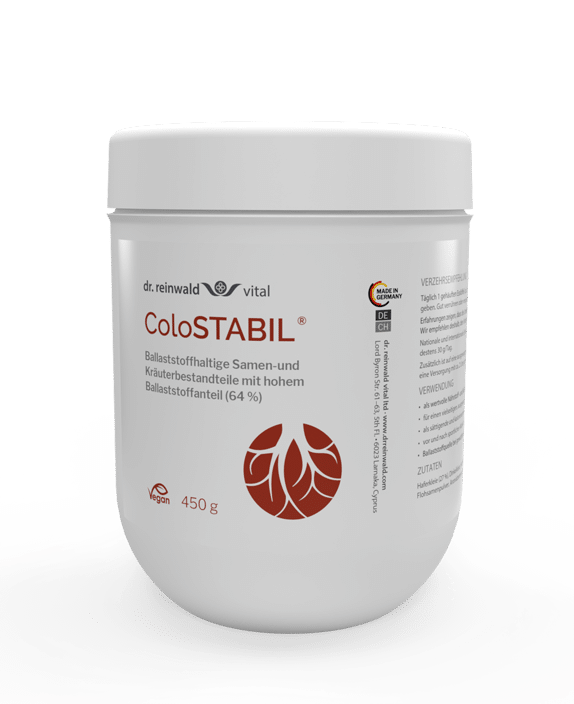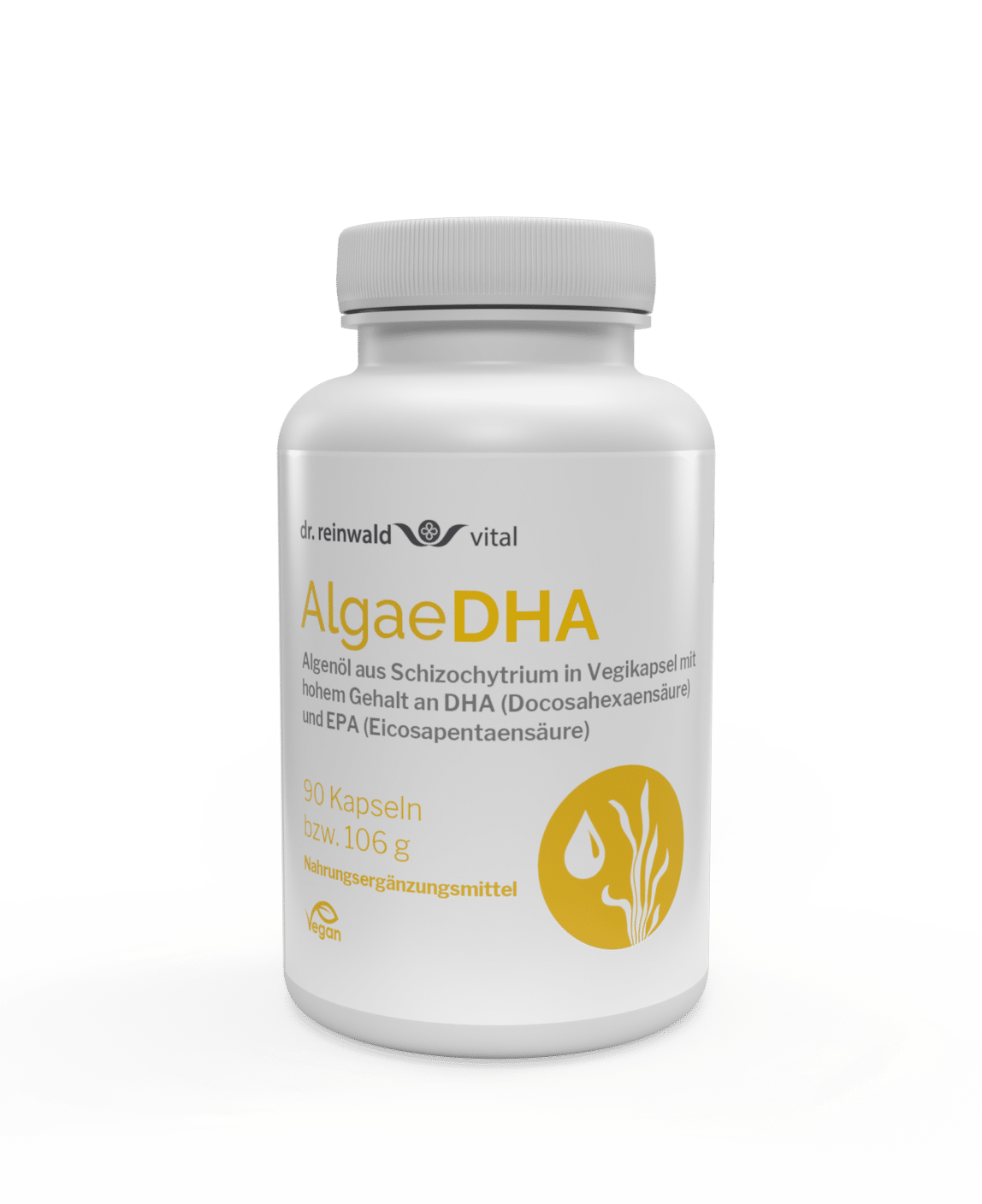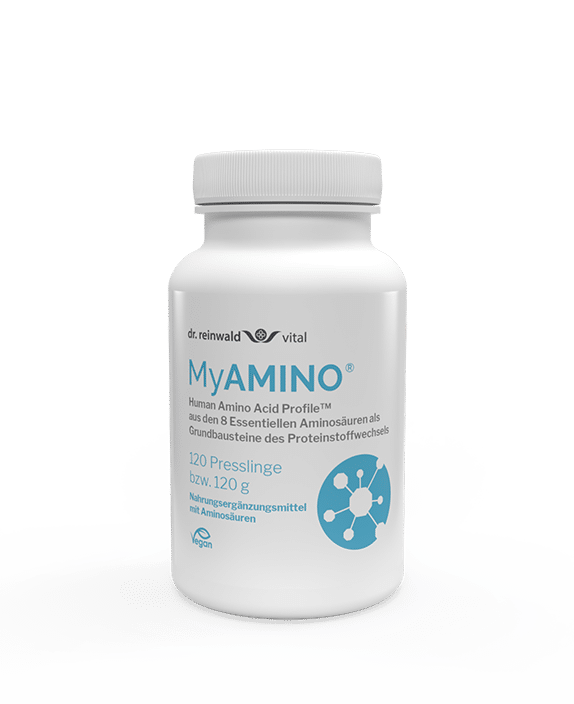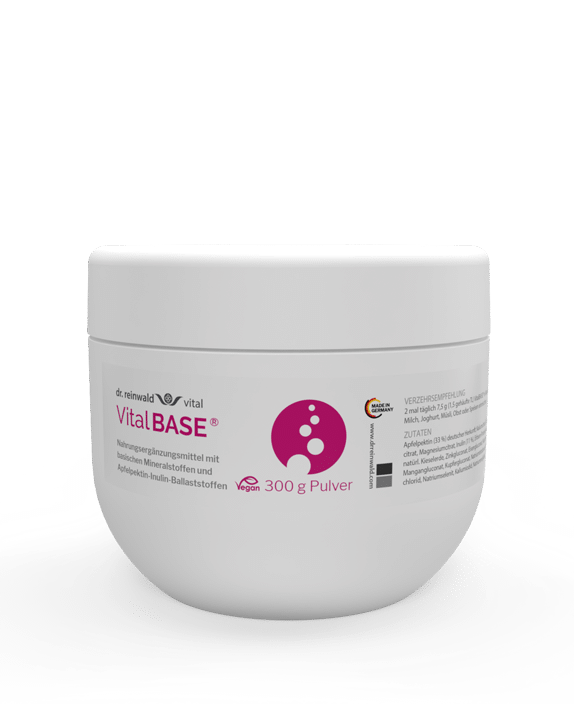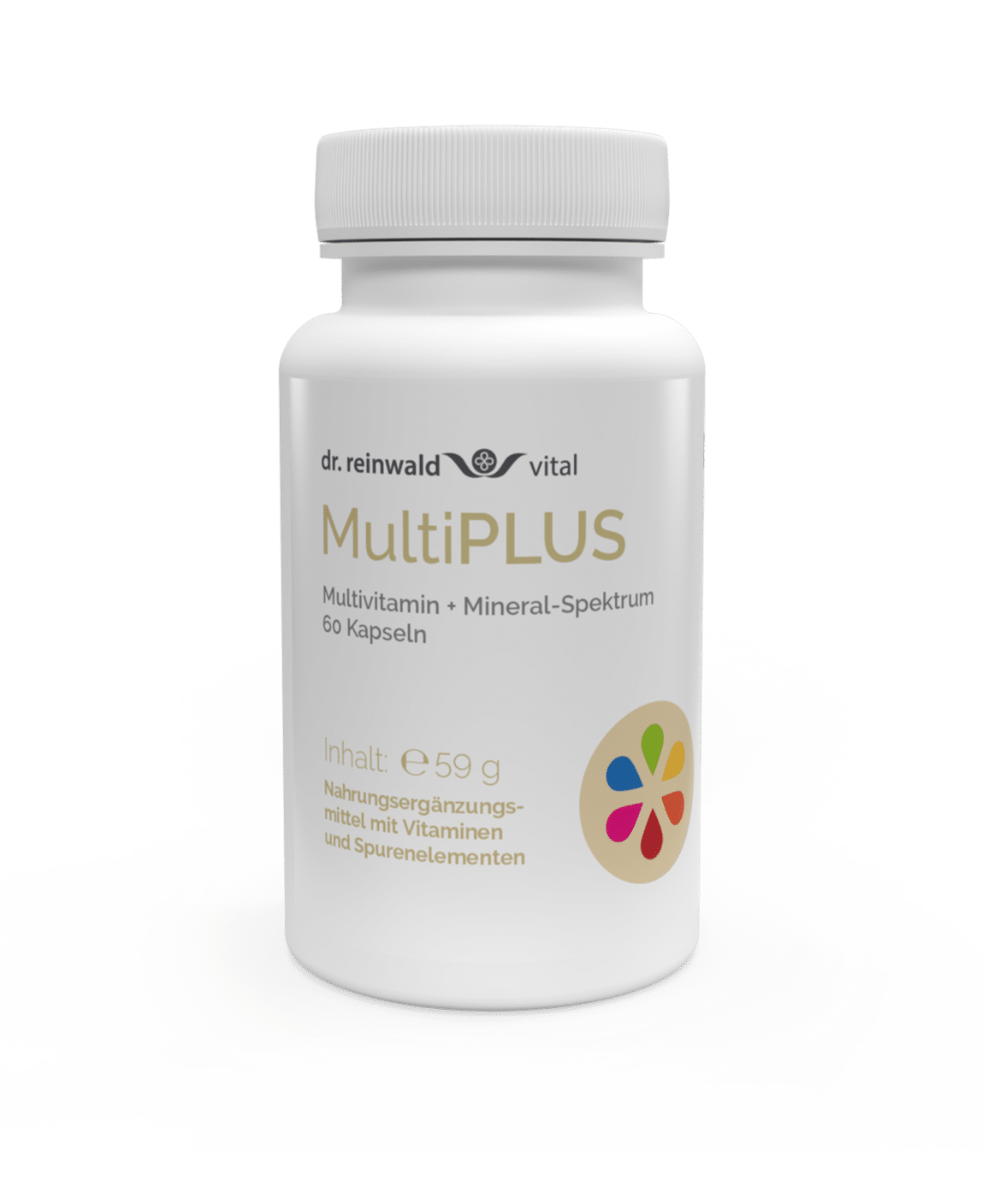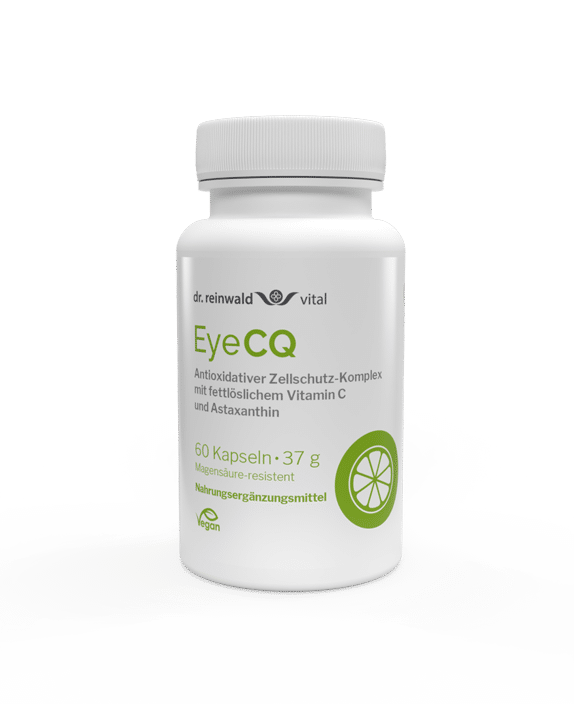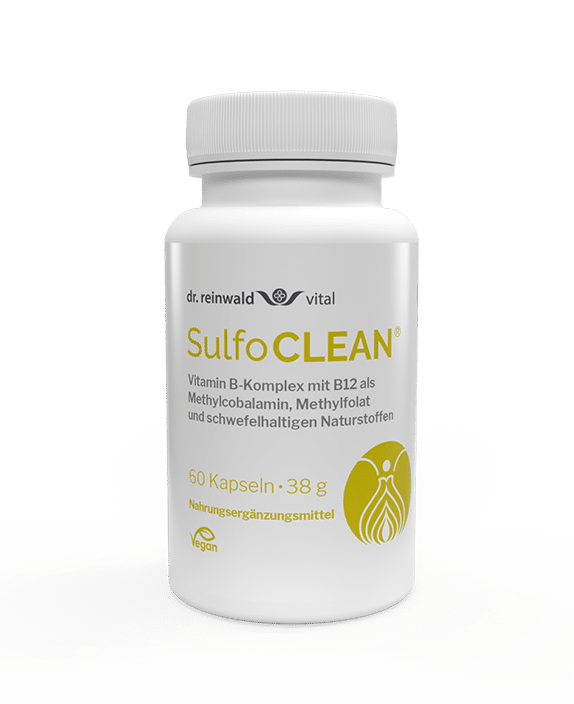Small but powerful: The basics about micronutrients
Vitamins, minerals and trace elements – in short the micronutrients – are a true elixir of life for us humans. It is not without reason that these little valuable helpers are often called vital substances. Because only with an adequate supply can our organism produce important hormones, enzymes and other substances, which in turn are responsible for metabolic processes such as regeneration, vitality and growth.
Essentially important?
Since micronutrients cannot be produced by the body or can only be produced inadequately, we have to cover our needs with our daily food. For this reason, some (micro-)nutrients as well as macronutrients are regarded as essential or necessary. But what actually happens if we consume too few of these helpful substances and thus suffer from a lack of micronutrients?
Even slight deficiencies – which incidentally occur very frequently in our latitudes – can have numerous negative health consequences. Tiredness, paleness, lack of concentration, listlessness, frequent colds, hair loss and weak immune system can be an indication of an existing undersupply. Unfortunately, however, these signs are to a certain extent unspecific, so that a connection with a nutrient deficiency is often unfortunately not recognized. Not least because the signals – depending on the missing micronutrient – can be very different.
However, if these signals are consistently ignored and there is an undersupply over a long period of time, serious illnesses such as diabetes, heart problems or cancer can unfortunately result. Getting to the bottom of the symptoms is therefore not only sensible, but essential. Especially if you suffer from a high level of stress, are at an advanced age or are pregnant, for example, you should make sure that you are sufficiently supplied – because in this case your body needs an increased supply of nutrients.
How do you prepare yourself against a defect?
First of all, it is important to know how a deficiency can arise in the first place. Because even with a supposedly healthy and balanced diet an undersupply can easily occur! The fact that deep-frozen pizza, noodles with ready-made tomato sauce, sweet particles from the baker and all kinds of junk and fast food do not provide any nutrients should be clear to everyone. But what does it look like when you really don’t live from the delivery service, but cook to the best of your knowledge and belief? Unfortunately, there are a few points you should be aware of in this case as well.
First of all, you should make sure that you rely on fresh, natural and unprocessed food. The rule of thumb is: the more unprocessed, the more micronutrients are still contained – for example, a ready-to-cook creamed spinach logically contains far fewer nutrients than a fresh, crunchy organic spinach from the market. However, not only the food quality is important, but also the correct storage and preparation method. Transportation, light, oxygen, moisture and heat have an extremely negative effect on the vitamin content of fruits and vegetables. Unfortunately, overheating during cooking also destroys the valuable vitamins, so you should rely on short and not too intense heating.
“Between eating and feeding can be worlds apart.”
Adage

It’s in the mix!
To prevent nutrient deficiency, a balanced healthy diet with lots of fresh untreated and organic food is an absolute must. However, since we unfortunately live in times in which environmental pollution is far advanced, the fields are exhausted by modern agriculture and the food so often contains few nutrients, we advise you to support your body with vitamins, minerals and trace elements. Iron, zinc, selenium, manganese, potassium, magnesium, sodium, vitamin A, B, C, D, E and K are only some of them. Yes, we know that’s a lot and can be overwhelming! But don’t worry: We can help you out – with a universal basic supply.
A closer look at micronutrients
Vitamins
Everyone knows, of course, that vitamins are found in fruits and vegetables. We show you in which foods you can find these valuable little helpers. Because a sufficient vitamin supply is important for your cell protection. You should keep in mind that vitamins can be fat-soluble or water-soluble. Thus, in contrast to water-soluble vitamins, fat-soluble vitamins can penetrate through the so-called lipid layers containing fat (i.e. the fatty cell layers of our organs) and protect the cells from oxidative stress or free radicals. A vitamin deficiency can therefore also make itself felt in organs such as the heart, brain or the digestive tract.
The vitamins group
- Vitamin A
- B Vitamins
- Vitamin B1 (thiamine)
- Vitamin B2 (riboflavin)
- Vitamin B3 (niacin)
- Vitamin B5 (pantothenic acid)
- Vitamin B6
- Biotin (vitamin B7)
- Folic acid (vitamin B9)
- Vitamin B12 (Attention: Only contained in food of animal origin!)
- Vitamin C
- Vitamin D
- Vitamin E
- Vitamin K
Vitamin-packed food
The great thing about vitamins is that you can find them in many foods. First and foremost, of course, in fruit and vegetables! But beware: Fruit and starchy vegetables unfortunately often contain a lot of carbohydrates, which in turn means increased sugar intake. As a vegan*in you should also think about vitamin B12, because you can only take in this important micronutrient through animal food. However, vitamin B12 can also be replaced very well, for example with our product SulfoCLEAN. There you will find the important vitamin B12 in combination with vitamin B6 and folate.
Our selection of vitamins:
- Fermented foods such as Kimchi or MyREGULATE
- All types of cabbage
- Black salsify and asparagus
- Pumpkin
- Leaf salads
- Green vegetables like zucchini, beans, spinach, cucumbers
- Colorful vegetables
- Mushrooms
- Tomatoes
- Berries
- Selected fruits like melons, grapefruit, guava, cherries
- Nuts, seeds, kernels
Product tips containing vitamins
If you would like to specifically enhance your vitamin balance, we can recommend our following vital products:
MultiPLUS (vegan)
The large multivitamin and trace element complex provides for a daily basic supply for universal and daily food revaluation.
EyeCQ® (vegan)
The synergistic vitamin complex with high-dose water- and fat-soluble vitamin C can contribute to protection against oxidative stress.
SulfoCLEAN® (vegan)
The vegan vitamin B complex with MSM and wild garlic supports the body’s own daily detoxification and metabolic optimization.
Minerals
If you want to do something good for your muscles, bones, teeth, hair and nervous system, you need to make sure that you have an adequate supply of minerals. Unlike vitamins, they are inorganic substances. Since you need relatively large amounts of these nutrients, they are also called bulk elements (as opposed to trace elements). By the way, minerals also play an important role in your electrolyte balance.
The group of minerals:
- Magnesium
- Calcium
- Phosphorus
- Potassium
- Sodium (Chloride)
Food containing minerals
Like the vitamins, minerals are mainly found in vegetable foods. In the context of a ketogenic diet, however, you should also make sure that you hold back a little on fruit and prefer green vegetables. Even if fruit is super delicious, unfortunately there is a lot of fructose in most varieties. But don’t worry! You’ll find plenty of alternatives and of course no exception can stand a rule.
Our mineral selection:
- All types of cabbage
- Leaf salads and leaf vegetables
- Pulses
- Mushrooms and mushrooms
- Nuts, seeds, kernels like Brazil nuts, sesame and pumpkin seeds
Product tips containing minerals
If you would like to specifically enhance your mineral balance, we can recommend our following vital products:
ColoSTABIL® (vegan)
The fiber-containing mixture of seeds, bitter substances and herbal components supports the intestinal function as well as the daily nutrition.
Active H® day (vegan) | Active H® night (vegan)
The stimulating potassium-mineral complex for during the day and the calming magnesium-mineral complex for the evening and night: The highly effective antioxidants support cell protection against oxidative stress.
VitalBASE® with apple pectin (vegan)
The basic minerals and trace elements in the powder mixture can contribute to an optimal acid-base and metabolic balance.
Trace elements
The trace elements are also inorganic substances, just like minerals. However, as the name suggests, you need much smaller amounts of these elements. In order for your hormones and enzymes to do a good job, you should prevent a deficiency. Especially during the cold season you can support your organism with sufficient zinc.
The group of trace elements:
- Iron
- Iodine
- Zinc
- Selenium
- Copper
- Manganese
- Chrome
- Molybdenum
Trace element rich food
Since your body only needs small amounts of trace elements, you can be completely relaxed even as a LowCarb fan.
Our trace element selection:
- Nuts, kernels and seeds
- Mushrooms and mushrooms
- Yeast
- Green leafy vegetables
- Dried fruits (here please only small quantities because of the sugar content)
Product tips containing trace elements
If you would like to specifically enhance your trace element balance, we can recommend our following vital products:
ColoSTABIL® (vegan)
The fiber-containing mixture of seeds, bitter substances and herbal components supports the intestinal function as well as the daily nutrition.
Active H® day (vegan) | Active H® night (vegan)
The stimulating potassium-mineral complex for during the day and the calming magnesium-mineral complex for the evening and night: The highly effective antioxidants support cell protection against oxidative stress.
VitalBASE® with apple pectin (vegan)
The basic minerals and trace elements in the powder mixture can contribute to an optimal acid-base and metabolic balance.
Other micronutrient sources
Secondary plant substances
- These are not only natural colorants, but also anti-inflammatory and have an antibacterial effect. It is clear that these substances are mainly found in fruit and vegetables. By the way, the more colorful your vegetable dishes are, the more versatile are the nutrients they contain. You see… not only the eye is eating.
- Plant substance group: flavonoids, carotenoids, phenolic acids / polyphenols, phytoestrogens, glucosinolates, sulfides, monoterpenes, saponins, phytosterols, chlorophyll
Essential fatty acids
- By the way, these fatty acids are also called polyunsaturated fatty acids and the addition “essential” already reveals it: For your body they are essential, especially the omega-3 fatty acids and omega-6 fatty acids. While your hormone balance is happy about omega-3 and is anti-inflammatory, omega-6 fatty acids can even be pro-inflammatory when they are highly increased.
- Since omega-6 fatty acids are contained in many (unhealthy) foods nowadays, a targeted balance with omega-3 fatty acids is useful. Above all fish and seafood, but also linseed oil, linseed, hemp seed, chia seed and walnuts can – in addition to targeted food supplements – be on the menu.
Amino acids
- Amino acids are the smallest building blocks of proteins and because of their immense importance they are often called “building blocks of life”. Basically, amino acids form the absolute basis in your body, as they play a decisive role in the construction and regeneration of your cells. So without the amino acids nothing works!
- They are divided into essential and non-essential ones. The latter can be produced by your body itself, but not the essential ones, so that a targeted supply is absolutely necessary. The best way to achieve this is with a high protein diet. However, it must be said at this point that this is not so easy. The quality of the food and our modern nutrition is by far not sufficient to meet the demand… and especially vegans* often have a problem here, because vegetable proteins unfortunately contain less net nitrogen usability than animal proteins. Targeted nutritional supplementation can not only be a solution, but also an essential and meaningful food enhancement.
- Amino acid group:
- Essential amino acids: Isoleucine, Leucine, Lysine, Methionine, Phenylalanine, Threonine, Tryptophan, Valine (to be found complete in MyAMINO®)
- Non-essential amino acids: alanine, arginine, aspartic acid, asparagine, cysteine, glutamine, glutamic acid, glycine, histidine, proline, serine, tyrosin
Vital product tips
Secondary plant substances:
ColoSTABIL® (vegan)
The fiber-containing mixture of seeds, bitter substances and herbal components supports the intestinal function as well as the daily nutrition.
Essential Omega-3 fatty acids:
AlgeaDHA (vegan)
The vegan essential omega-3 fatty acids enhance the daily diet and contribute, among other things, to the strengthening of heart, bones and brain.
Essential amino acids:
MyAMINO® (vegan)
The 8 essential vegan amino acids contain the world’s highest protein nutritional value, almost no digestive end products and no calories.
